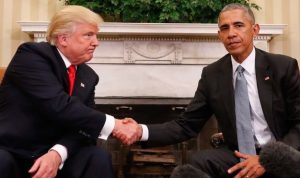body language faux pas
Body Language Faux Pas
Vocabulary
| tone | indicate | contradict |
| cue | reveal | expression |
| casual | posture | appearance |
| VIP | express | self-esteem |
| expect | attention | confidence |
| esteem | intention | commonplace |
| lack | standard | motivated |
| endure | arrogant | favorably |
| wimpy | perceive | handshake |
| grasp | hunched | go a long way |
| shake | enduring | diminutive |
| curve | slouch | don’t care |
| poise | denote | impression |
| convey | suggest | exaggerate |
| ensure | palm (2) | composed (2) |
| stiff | squeeze | come across |
| gesture | firm (2) | demonstrate |
| accept | sincerely | express (2) |
| fidget | nervous | set off (2) |
| mature | faux pas | personal space |
| seek | intimate | approximately |
| engage | stranger | appropriate |
| casual | anxious | casual acquaintance |
| charm | clarify | vice versa |
| loony | achieve | repertoire |
| stare | intently | on the flip-side |
| overdo |


Body Language
Body language plays a far greater role in life than what we might expect.
According to psychologists, only about seven percent of human communication is through actual words alone.
This means that over 90% of our communication is nonverbal: the tone of voice…body postures…facial expressions…gestures…breathing patterns…hand and feet movements.
These cues reveal far more than what a person says — or doesn’t say. And frequently, words and physical appearances contradict each other (and guess which always wins?)
From casual encounters with strangers to formal meetings with VIPs, we express everything about ourselves and our intentions to others — and vice versa — with just a few basic gestures.
Here are some common body language “mistakes” that people often make, and what should be done instead.
1. Avoiding eye contact
A lack of eye contact indicates a lack of confidence and low self-esteem . . . or that you’ve got something to hide.
And so maintaining good eye contact conveys to others confidence, high self-esteem, or just plain normalcy. On the flip-side, you don’t want to stare intently into another person’s eyes either.
2. Weak handshake
Whenever people meet or greet each other, they usually shake hands. It is so commonplace, we hardly think anything of it — provided it’s a standard shake.
A limp handshake however can leave a negative first (and enduring) impression, even though it only lasts only a couple of seconds.
A study conducted by the University of Iowa in 2008 found that job applicants who shake interviewer’s firmly are always perceived more favorably than those who give wimpy grasps.
But remember, don’t squeeze the other person’s hand too hard either.

3. Slouching
Be sure to have good posture. Slouching signals that you don’t care or are unmotivated. If a person’s back is curved and the shoulders are hunched, he or she appears physically and mentally diminutive.
On the other hand, having a straight back and upright shoulders, maximizes the amount of space you fill and so denotes self-control and poise.

4. Crossed arms
Crossing your arms conveys the message that you are bossy or arrogant. Crossed arms also act as a physical barrier suggesting you’re not open to others or what they are saying.
If you want people to view you as open-minded and accepting, keep your hands at your sides.

5. Exaggerated gestures
Do not overdo your hand gestures. Dramatic gestures mean that you are not balanced, composed, or together; or that what you are saying is an exaggeration.
That being said, you it’s alright to communicate with your hands, but use small, controlled gestures to clarify ideas, and not come across as a stiff robot.
Also, ensure you use open gestures, for example, showing the palms of your hands; this helps to demonstrate that you are sincere and have nothing to hide.

6. Fidgeting
Fidgeting makes you appear nervous or anxious. Fidgeting includes playing with your hair, biting your lip or tapping your fingers on a table. It’s a sign that a person is immature, a child who cannot keep still. You must avoid it if you wish to demonstrate attention and maturity.
In a survey of 2,100 hiring managers conducted by CareerBuilder, 29% identified fidgeting as the biggest body language faux pas made by job seekers.
7. Invading personal space
Give people their personal space. Standing too close to someone (nearer than half a meter) can make people feel uncomfortable . . . it suggests that you want to be intimate with them.
Approximately an arm’s length is an appropriate distance between colleagues, casual acquaintances and strangers while engaging in conversation.
8. Failing to smile
A smile expresses friendliness, openness, and charm. With formal exchanges, it also sets off the mirror neurons in your listener, causing them to smile back. Even a nervous smile is better than no smile at all (you will come across as mean and icy).
But remember, don’t overdo it: you’ll look loony.
For leaders and high achievers, positive body language is part of their repertoire. For others, very simple gestures can go a long way in influencing your personal and career success.
Questions
1. Words are the most important element of communication. Is this correct or wrong?
2. Which do people believe more, what others say or their body language?
3. If someone looks down, it means . . .
4. How you shake another person’s hand is incidental; it means nothing. Yes or no? Does it make a difference?
5. What did your teachers and parents tell you about sitting? Why should people sit like this?
6. What is your first impression when you see someone standing with their arms crossed?
7. People should talk like a person using sign language. True or false? What advice does the text give?
8. How do you feel when someone taps on the table or clicks a pen continually?
9. The closer you stand to someone you are talking to, the better. Yes or no?
10. In serious situations, should you always look serious?
11. Can body language have a big impact on a person’s career and personal life?
A. Do the gestures described in the text apply to your culture as well? Are they universal?
B. I know people who avoid eye contact, fidget or slouch. Yes or no?
C. Have you met someone who gave a weak (or very strong) handshake? What was your immediate reaction?
D. I have seen people cross their arms in school, work or on the street.
E. Do people in your city use hand gestures?
F. Do people always, usually, sometimes, rarely or never smile with others in public?
G. Body language can significantly influence a person’s life. Or it is minor and actions and accomplishments are more important. What do you think?
H. What will happen in the future?
